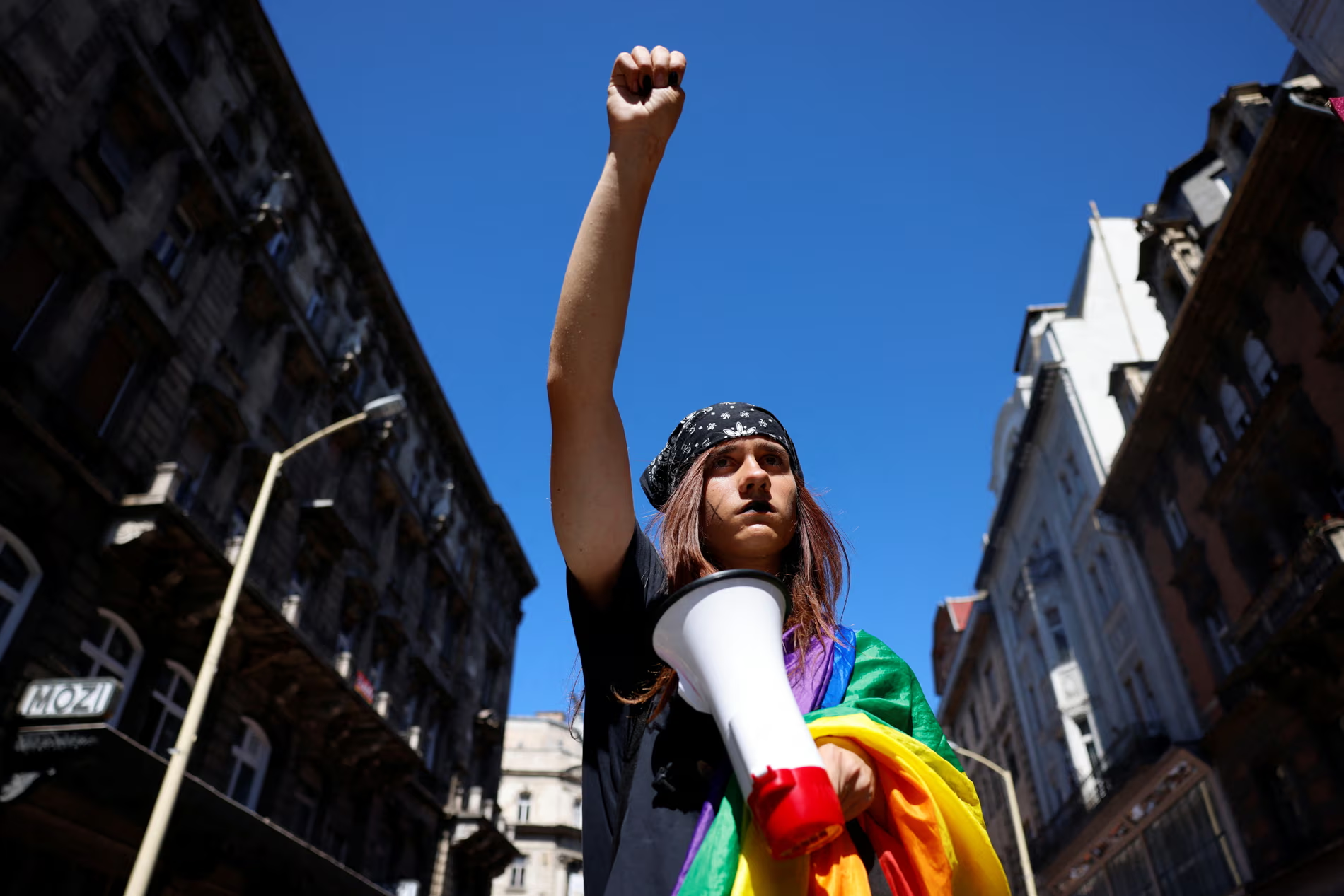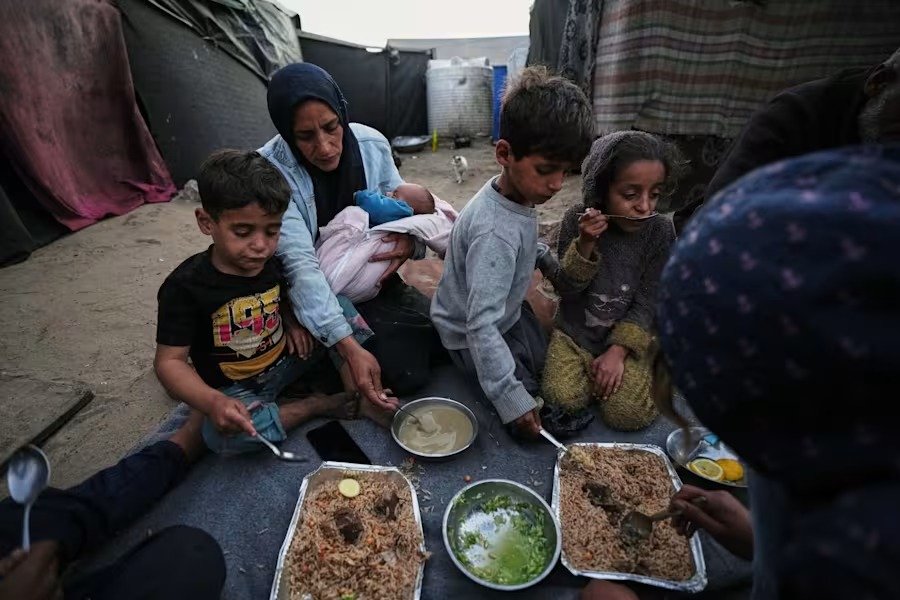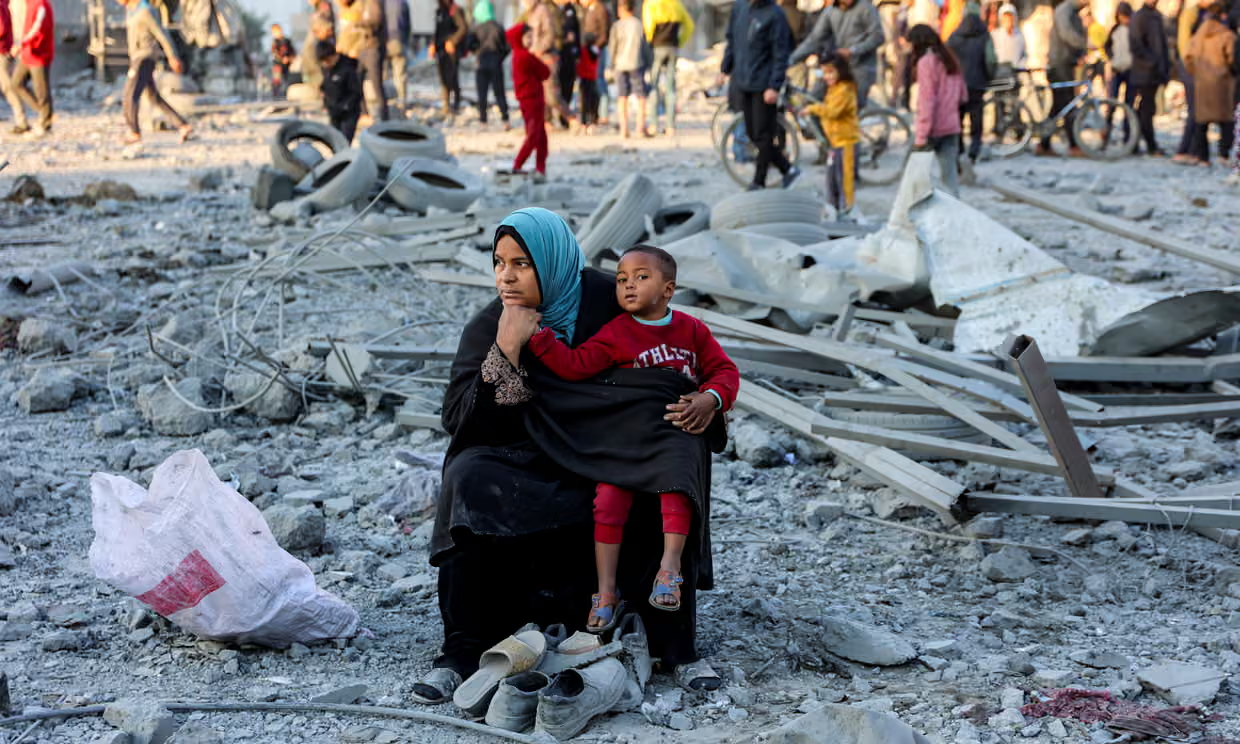Tens of thousands gathered in Budapest on Saturday to take part in a peaceful Pride march, openly defying a government ban imposed by Hungary’s ruling party. The massive turnout is seen as both a celebration of LGBTQ+ rights and a direct protest against Prime Minister Viktor Orbán’s administration.
Organizers estimate that between 180,000 to 200,000 people joined the event. This figure far exceeded the initial expectation of around 40,000 participants. The march also marked the 30th anniversary of Budapest Pride.
The protest came as a response to Hungary’s new law that bans public events showing or discussing LGBTQ+ content if minors are present. Critics say the law is being used to suppress free speech and to limit LGBTQ+ visibility in the country.
One marcher, Timi, 49, said she felt compelled to join after the government tried to ban the event. Her daughter, Zsófi, flew in from Barcelona to stand beside her. “We came because they tried to ban it,” said Timi.
Another participant, Viki Márton, brought her 9-year-old daughter. Both came prepared for the summer heat. “I want her to see the reality,” she said. “I’m so excited to be here!”
Earlier this month, police announced they would enforce the government’s order and cancel the march. In response, the mayor of Budapest, Gergely Karácsony, announced the city would host the event as a municipal gathering. This allowed the Pride march to go forward without official approval from the national government.
Mayor Karácsony explained that the city’s decision aimed to uphold the values of freedom, dignity, and equal rights. He criticized the government for targeting minorities and creating division in society.
“The government is always creating an enemy to protect the people from,” the mayor said. “This time, it’s sexual minorities. We believe there should be no second-class citizens.”
Participants traveled from across Hungary and even other countries to join the event. Akos Horvath, 18, took a two-hour trip to attend. “It’s not just about representing gay people,” he said. “It’s about standing up for all Hungarian rights.”
Others, like Eszter Rein-Bódi, also saw the march as a wider political statement. “This is about much more, not just about homosexuality,” she said. “This is the last moment to stand up for our rights.”
The protest saw people of all ages, including elderly citizens, parents with children, and activists from 30 different countries. Many held signs criticizing Prime Minister Orbán and his administration.
Despite the ban and warnings from government officials, the event remained peaceful. Some right-wing groups attempted counter-marches, and the route was briefly altered when one group blocked a bridge. Still, no major violence occurred.
Orbán had warned of “legal consequences” for those who organized or attended the march. Justice Minister Bence Tuzson stated that promoting a banned event could result in a one-year prison sentence. Still, Mayor Karácsony dismissed these threats and focused on ensuring safety at the event.
“The only job of the police is to protect those at the event,” the mayor told reporters.
Concerns about privacy were also raised ahead of the march. Reports said new cameras had been installed along the planned route. Government sources hinted that facial recognition software might be used to identify attendees and fine them up to €500.
This raised fears among many potential participants. Elton, a 30-year-old Brazilian living in Hungary, said he had been nervous about attending. He feared problems at work and issues with his immigration status. Still, his Hungarian partner convinced him to come. “This is my second time at Pride,” he said, “but the first time I feel insecure.”
Mici, 21, a student from Budapest, echoed similar feelings. She had joined previous Pride events but said she hesitated this year after reading about facial recognition technology. “At first, I was scared,” she said. “But I feel safe with so many people around me.”
Despite the risks, the crowd remained firm in its stance. Many believe the large turnout sends a clear message to the government.
“I think this record number of people will show the Hungarian public that this cause is important and widely supported,” said Mici.
The protest comes ahead of national elections next year, where Orbán faces growing opposition from former allies. Some analysts say the crackdown on LGBTQ+ events is part of a broader strategy to rally conservative voters.
The event ended without major incidents, and many participants hope the public pressure will lead to a shift in government policy. The day became not only a celebration of identity but also a powerful statement for freedom and justice.







